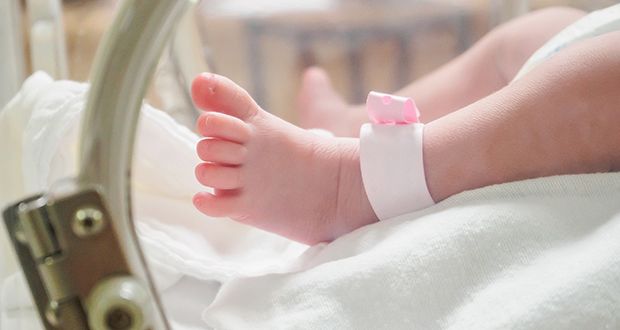'Deny, deflect, destroy' – Letby whistleblower describes backlash

A paediatrician who helped reveal the truth about the British nurse who murdered seven babies has said he would have ‘probably just left’ the hospital where the murders took place if he knew in advance how he would be treated as a whistleblower.
Speaking in Dublin at a recent RCSI conference on medical professionalism, Dr Ravi Jayaram described how he repeatedly faced backlash from hospital management after he and colleagues raised concerns over a spike in neonatal deaths.
Last August nurse Lucy Letby was convicted of the murder of seven babies and the attempted murder of six others in the Countess of Chester Hospital’s neonatal unit between June 2015 and June 2016.
“From a very early stage, after the first cluster of unusual events in June ‘15, this was put onto the radar of people as high as the director of nursing,” he said. “No accusations – we were just saying this is very odd.”
The matter was raised with the hospital’s medical director the following October, and an external neonatologist carried out a review in 2016, but this found no evidence of suspicious activity.
However, by 2016 Dr Jayaram and a team of paediatric consultants began to link the deaths to Letby, who they noticed was working in the neonatal unit when each death took place.
By the time he managed to raise his concerns around Letby to the hospital’s chief executive later that year, Dr Jayaram told the meeting that the CEO’s response was “I can see how that would be a very convenient explanation for you, but surely there must be something else.”
“What I’ve realised subsequently is that set the tone for everything that happened after that,” Dr Jayaram said. While the consultants urged for the police to be made aware of their concerns, it took hospital management a further 11 months to involve law enforcement.
In the meantime, Letby raised a grievance against the hospital’s trust about how she was being transferred to non-clinical duties, which Dr Jayaram later found was part of efforts to convince hospital management that he and colleagues were victimising the child killer.
According to Dr Jayaram, even after the police had begun the investigation into Letby, the then medical director, who retired shortly afterwards, told his replacement that one of their jobs was to report the paediatricians to the General Medical Council.
“It’s a bit like trying to argue with a flat-earther or an anti-vaxxer. They’re so invested in it that they can’t change their minds,” Dr Jayaram explained.
“What I’ve learned is that actually most whistleblowers wouldn’t be standing here now, still in a job, because most whistleblowers are broken. Deny, deflect, destroy.
He added: “If I knew then what I now know about whistleblowers, I’d probably have just left.” At one point in the process, he said that he and a colleague were just a few days away from moving to another hospital.
“Because coming to work every day doing a high-risk job, knowing the people at the very top are just waiting for you to one foot wrong, is untenable.”
Describing Irish regulations in place for whistleblowers, Medical Council president Dr Suzanne Crowe told the conference that the Council has been trained up as the nominated body to receive protected disclosures from health professionals and the public in relation to the health service.
However, while legislation such as the Protected Disclosures Act aims to support whistleblowing here, Dr Crowe said that many of those who speak out still do not feel protected. “We continually wrestle against human behaviour,” she added.
In 2022, the Medical Council received 301 complaints, a figure expected to have risen further last year. Examples of complaints received included a failure to examine a patient properly, inappropriate behaviour and examinations, serious breaches of a patient’s confidence, and fraud or dishonesty.
More than 90 per cent of the grievances received in 2022 were from members of the public. Dr Crowe said that the low percentage of complaints coming from within the health service represents a ‘serious disconnect’.
“You have employers who have healthcare staff working within their organisations, but they’re not seeing or hearing anything, apparently. But members of the public and patients and their families are going in and out of these same institutions, and they’re seeing plenty,” she said.
“We are looking for serious issues to be raised within healthcare, and there can be nobody more knowledgeable and better placed than the employers and the senior managers to make those complaints.”
Earlier, the meeting heard from Stephen Teap, whose wife Irene died of cervical cancer in July 2017. After her death Mr Teap was informed that previous smear tests which displayed abnormalities had been misread, meaning that clinicians were unable to treat Irene at an earlier stage and possibly save her life.
The controversy led to an external inquiry, which 50 recommendations on how the service can be improved in areas including laboratory services and open disclosure.
When Mr Teap was first told that his late wife’s smear tests had been included in an audit, he was called by a non-medical professional who could not answer his questions, something which he believes would not have been the case if a patient was in the room when a decision on how this should be handled was made.
As a result of his experiences, Mr Teap advocates for the inclusion of patient advocates at all levels of the health service, “to give a view from the ground up, and to humanise the medical terminology that those within the profession speak but doesn’t make sense to us that are outside it.”

















































